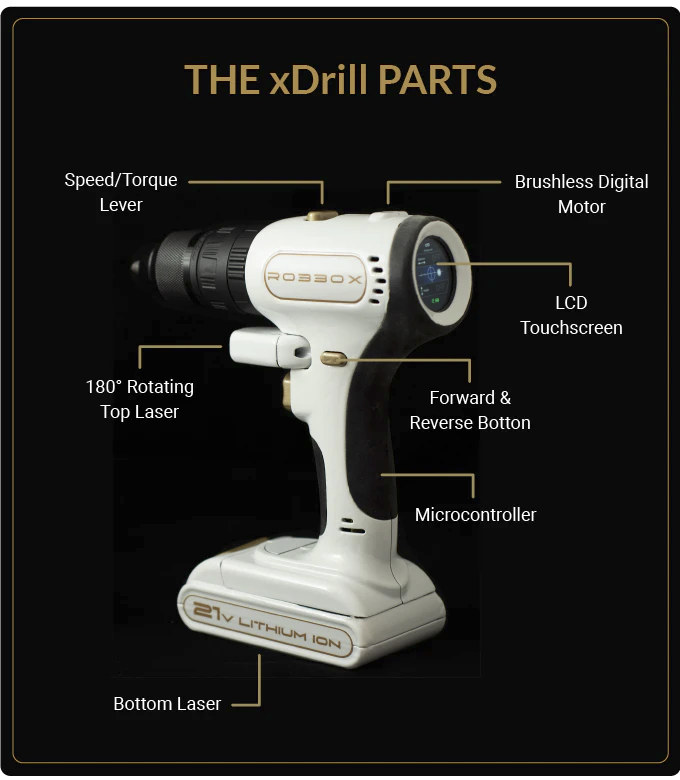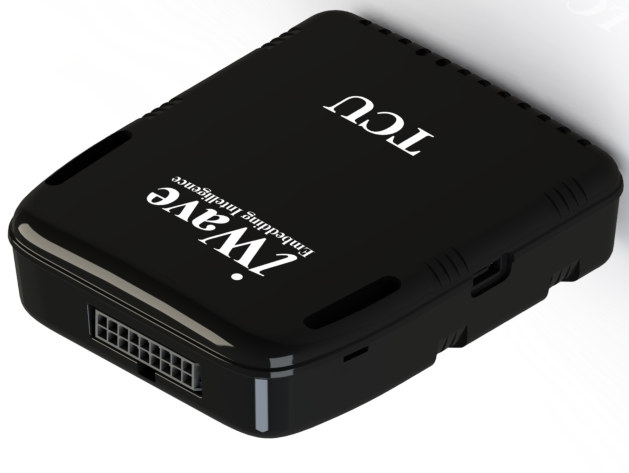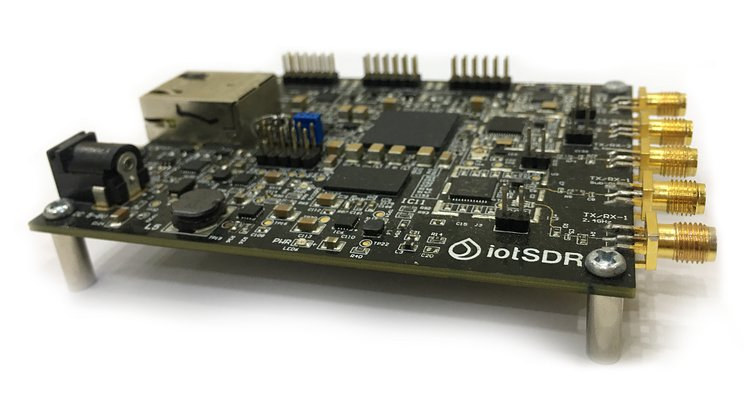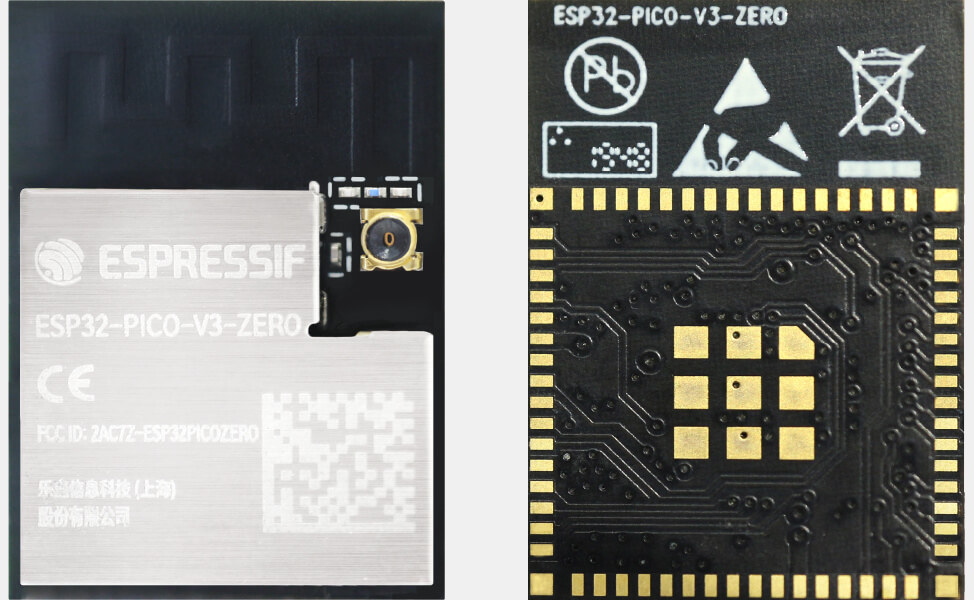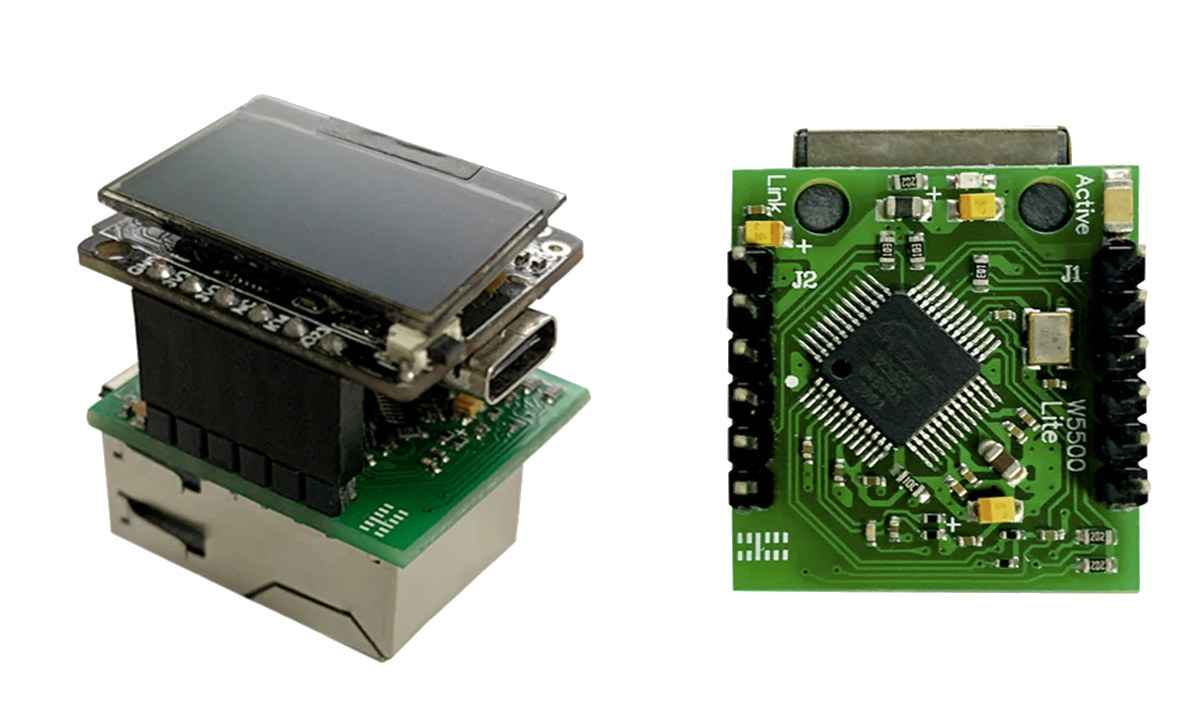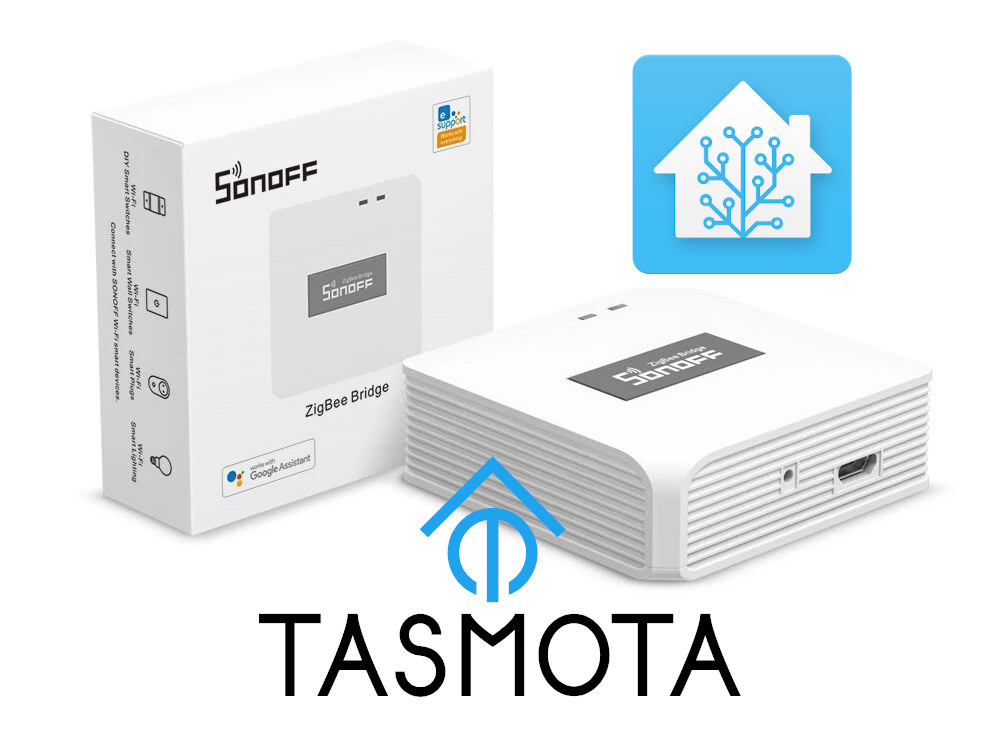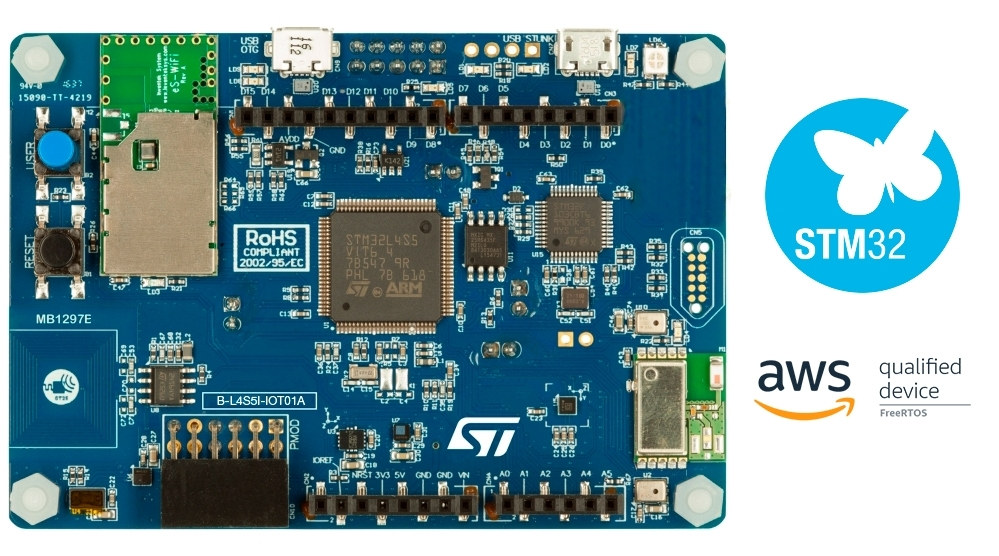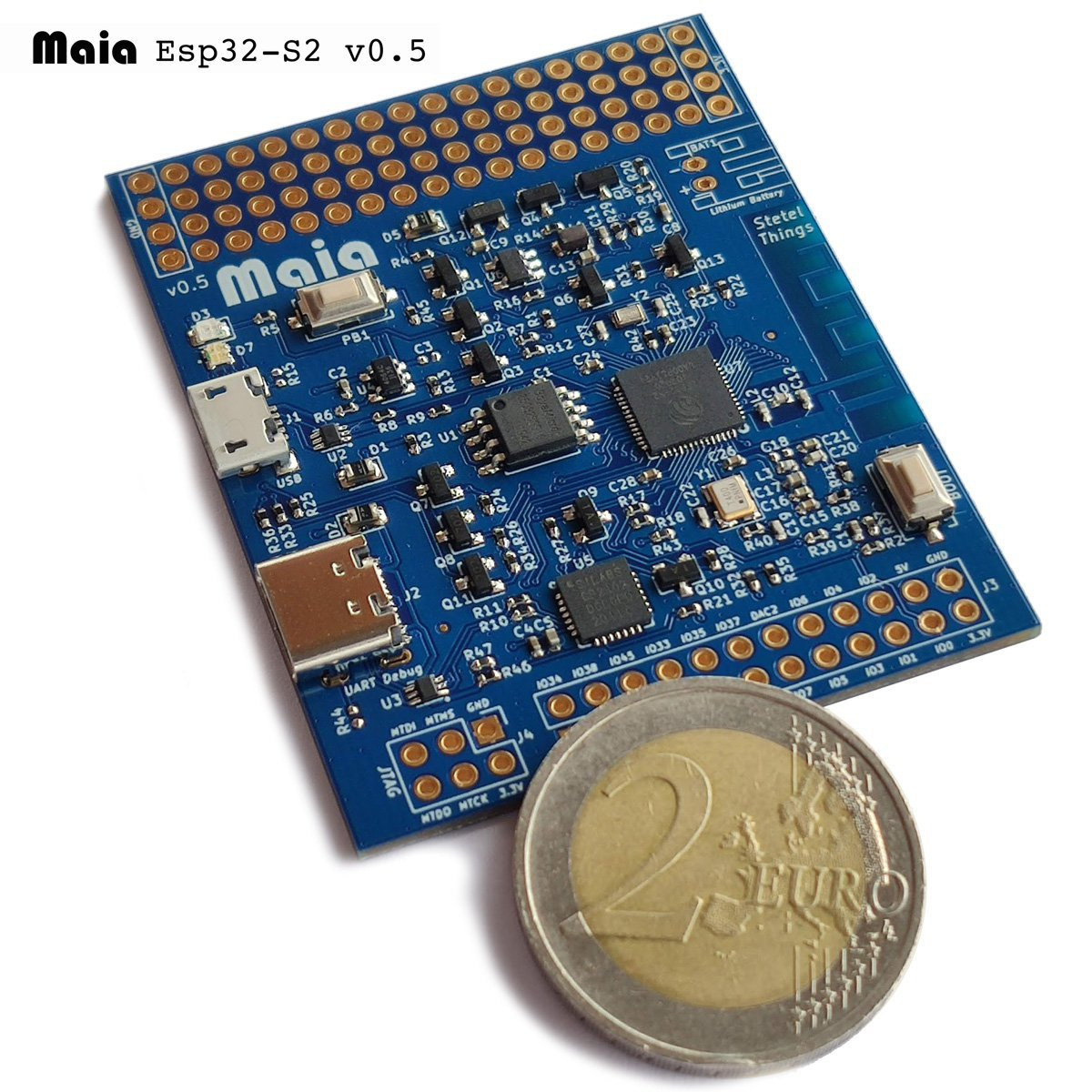Many home appliances now have smart functions, and in my cases, I fail to see the added value, and I’m not sure why I’d want/need a connected refrigerator with a touchscreen display. So when I first saw somebody make a “smart” power drill with a small touchscreen display I laughed. But after having a closer look, Robbox xDrill smart power drill could actually be a very useful device saving you time and helping work better. The touchscreen is used for settings but also serves as a level tool to make sure the drill is aligned horizontally or at the angle of your choice, and you can also set the drilling depth. There are also two lasers that measure distances, so you don’t need to use a measuring tape and pencil anymore. xDrill key features and specifications: Built-in microcontroller with WiFi and Bluetooth connectivity (is that an ESP32 inside?) Display – […]
iWave Telematics Control Unit Supports GPS, 4G LTE, WiFi, and Bluetooth
We’ve often written about iWave Systems’ single board computers, development kits, and systems-on-module, but the company has also been offering automotive products such as a Linux based OBD-II Dongle. And they’ve just introduced a new one called Telematics Control Unit (TCU) based on an Arm Cortex-A7 processor and offering GPS, 4G LTE Cat 4/1/M1, WiFi 5, and Bluetooth 5.0 connectivity for vehicle fleet management and insurance companies that want to know how drivers behave… iWave Telematics Control Unit (TCU iW-G26) specifications: Processor – Arm Cortex-A7 based CPU @ 792MHz (likely NXP i.MX 7ULP) System Memory – 256MB DDR3L SDRAM Storage – 4GB eMMC Flash Connectivity 4G LTE Cat 4, Cat 1, Cat M1 (eMTC) 802.11b/g/n Wi-Fi 4 or 802.11b/g/n/ac Wi-Fi 5 (Hotspot & Station mode) Bluetooth 5.0 GNSS – GPS/A-GPS receiver with antenna Sensors – 3-axis accelerometer, 3-axis gyroscope, 3-axis magnetometer OBD Features & Protocols 12V Power Input from TCU […]
IoTSDR Linux Board Targets the Development of IoT Gateways with Standard or Custom IoT Protocols (Crowdfunding)
Xilinx Zynq-7010/-7020 powered iotSDR board by EmbedINN enables the development of IoT gateways with support for LoRa, SigFox, WeightLess, Bluetooth, BLE, 802.15.4, ZigBee, as well as custom IoT protocols. The board also supports GPS, Galileo, Beidou, and GLONASS navigation systems thanks to a Maxim Integrated MAX2769 GNSS chip. iotSDR key hardware features and specifications: SoC (one or the other) Xilinx Zynq-Z7010 (XC7Z010-1CLG400C) dual-core Arm Cortex-A9 processor with 256 kb on-chip memory, FPGA fabric with 28,000 logic cells, 17,600 LUTs, 2.1 Mb block RAM, 80 DSP slices Xilinx Zynq-Z7020 (XC7Z020-1CLG400C) dual-core ARM Cortex-A9 processor with 256 kb on-chip memory, FPGA fabric with 85,000 logic cells, 53,200 LUTs, 4.9 Mb block RAM, 220 DSP slices System Memory – 512 MB DDR3 Storage 128 Mbit QSPI flash memory for firmware Microchip AT24MAC602 SPI EEPROM for RF transceiver MCU firmware and data Radios “IoT” Radios RF Transceivers – 2x Microchip/Atmel AT86RF215 European band – […]
Espressif and Amazon Introduce ESP32-PICO-V3-ZERO Alexa Connect Kit Module
Espressif Systems & Amazon have recently announced ESP32-PICO-V3-ZERO Alexa Connect Kit (ACK) module providing out-of-box connectivity to ACK cloud services, support for features such as Alexa control, “Frustration-Free Setup” and Amazon Dash replenishment for connected devices. The tiny (23 x 16 x 2.3mm) module is based on the company’s ESP32-PICO-V3 System-in-Package (SiP) based on ESP32-V3 dual-core Xtensa LX6 WiFI and Bluetooth SoC, a 4 MB SPI flash, a crystal oscillator, filter capacitors, and an RF matching network. The module supports 2.4 GHz 802.11 b/g/n WiFi, Bluetooth, and Bluetooth Low Energy connectivity and comes with a PCB antenna and a u.FL connector to plug in an external antenna [Update: That should be an RF test connector instead, see comments]. ESP32-PICO-V3-ZERO module interfaces to a host MCU through a UART interface, and to speed-up time-to-market the module comes pre-certified for regulatory certifications such as FCC, CE, SRRC, IC, and RCM. The module […]
TTGO T-Lite W5500 ESP32 WiFi & Bluetooth Board Comes with OLED Display, Optional Ethernet Add-on Board
If you like tiny boards with Ethernet, TTGO T-Lite W5500 development board may be an interesting option, as the ESP32 board comes with a built-in OLED, and female headers to connect an Ethernet add-on board called W5500 Gateway Module. LilyGO TTGO T-Lite W5500 specifications: SoC – Espressif System ESP32 dual-core WiFi and Bluetooth SoC with 520KB SRAM Storage – 4MB flash Display – 0.96-inch OLED display (SSD1306 driver) Connectivity 802.11 b/g/n WiFi 4 up to 150 Mbps, and Bluetooth 5.x BR/LE via ESP32 SoC, on-board ceramic antenna or external antenna (selectable with a resistor?) Optional Ethernet via SPI Ethernet board based on Wiznet W5500 USB – 1x USB Type-C port for power and programming via CP2104 USB to TTL chip I/Os 8+6 through holes with GPIOs, SPI, ADC, Touch, 5V, 3.3V, GND Operating voltage – 2.7V-3.6V Misc – Boot & Reset button, 40MHz crystal oscillator Power Supply – 5V/1A via […]
Sonoff Zigbee Bridge Now Supports Tasmota Firmware, Home Assistant, Zigbee2Tasmota
Sonoff ZBBridge (aka Sonoff Zigbee Bridge) WiFi to Zigbee gateway was launched a few months ago for $16.90 plus shipping, and it’s now also listed on Banggood for $17.99 shipped. It allows users to control Zigbee devices connected to the gateway using the eWelink mobile app used with other Sonoff devices. But many people like to run Tasmota firmware on their Sonoff devices since it’s open-source and provided more flexibility such as integration with Home Assitant or Domoticz. There was already support for Zigbee in Tasmota at the time but only for Texas Instruments SimpleLink CC253x Zigbee MCU’s, and Sonoff ZBBridge is made of an ESP8266 WiSoC and a Silicon Labs EFR32MG21 Gecko Series 2 Cortex-M33 Zigbee microcontroller. So I just suspected that eventually, Sonoff Zigbee Bridge could support Tasmota open-source firmware but that would take some time… It took about four months. Not too bad. It started in the […]
STM32 IoT Discovery Kit Runs AWS-Ready FreeRTOS, Supports Arduino and Pmod Expansion Boards
STMicroelectronics STM32 IoT Discovery Kit is supposed to ease software development for IoT nodes thanks to a qualified port of FreeRTOS integrated into the STM32Cube ecosystem, and ready to connect to Amazon Web Services (AWS). The hardware is comprised of an STM32L4+ Cortex-M4F microcontroller, various MEMS sensors, a secure element, and offers WiFi, Bluetooth 4.2, and NFC connectivity. STM32 IoT Discovery Kit (B-L4S5I-IOT01A) key features and specifications: MCU – STMicro STM32L4+ (STM32L4S5VIT6) Arm Cortex-M4F microcontroller with 2 MB Flash, 640 KB RAM in LQFP100 package storage – 64 Mbit Quad-SPI Flash Connectivity Bluetooth 4.1 module (STMicro SPBTLE-RF) 802.11 b/g/n compliant Wi-Fi module (Inventek ISM43362-M3G-L44) Dynamic NFC tag based on ST25DV04K with its printed NFC antenna USB – Micro USB OTG port STMicro Sensors 2 digital omnidirectional microphones (MP34DT01) Relative humidity and temperature sensor (HTS221) 3-axis magnetometer (LIS3MDL) 3D accelerometer and 3D gyroscope (LSM6DSL) 260-1260 hPa absolute digital output barometer (LPS22HB) […]
Maia ESP32-S2 Development Board Features Micro USB OTG Port, Prototyping Area
One of the advantages of the new ESP32-S2 processor is that it offers a USB OTG interface. So far few boards took advantage of the extra interface, and one of the rare ones is Cucumber ESP32-S2 board with a USB-C OTG port. There’s another option with a slightly unusual form factor thanks to Stetel Things’ Maia ESP32-S2 development board with the typical USB-C port for power and debugging, plus a micro USB OTG port, and a small prototyping area. Maia ESP32-S2 development board specifications: SoC – Espressif System ESP32-S2 single-core LX7 processor at up to 240 MHz with an ultra-low-power (ULP) RISC-V CPU, 320KB RAM Storage – 4MB flash Connectivity – 802.11b/g/n WiFi 4 with on-board PCB antenna USB 1x Micro USB OTG port for data and power 1x USB-C port for programming (virtual UART) and power Expansion 24-pin I/O header “Playground” prototyping area with 4x 18 through holes including […]


